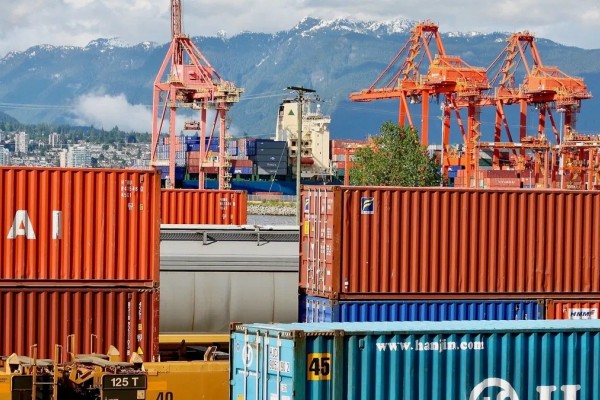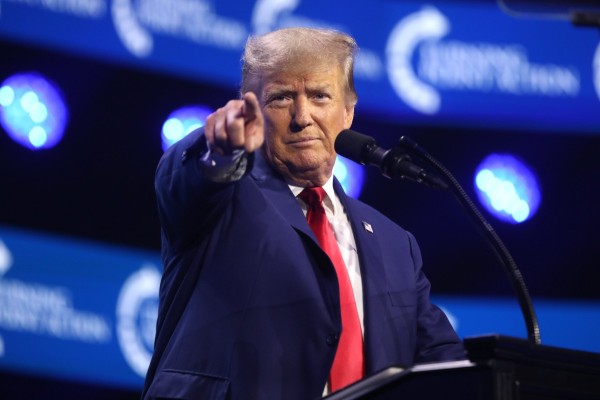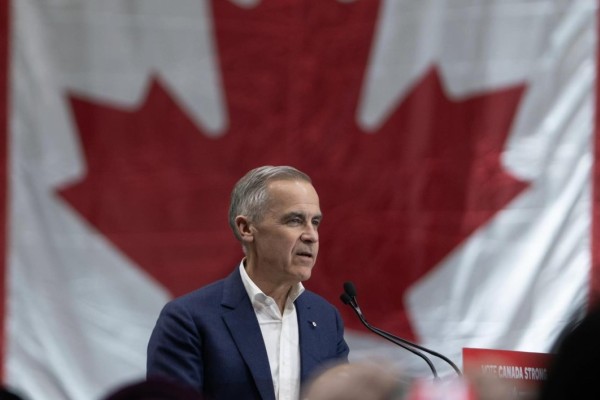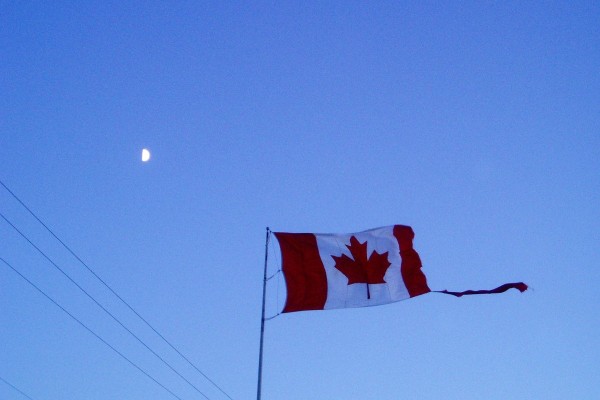Canada and the new world disorder
We are confronted with the probability that the free trade era has come to an end
Canadian PoliticsEconomic CrisisLabourGlobalizationUSA Politics
_800_533_90.jpg)
Donald Trump speaking with attendees at an Arizona for Trump rally at Desert Diamond Arena in Glendale, Arizona. Photo by Gage Skidmore/Wikimedia Commons.
President-elect Donald Trump’s threat to impose punitive tariffs on imports from Canada and Mexico (and China) has, unsurprisingly, provoked near panic among Canadian elites who have long considered themselves to be trusted junior partners of the United States.
There is a widespread sense that the liberal economic order is on the verge of collapse, potentially leaving Canada alone and adrift, a minnow in a sea of competing national powers.
It is instructive to recall the great Canadian debate over free trade with the US in the mid to late 1980s when fears of American protectionism prompted a hotly debated major shift of Canadian economic policy away from interventionism to hands off neoliberalism.
Left nationalist critics of the deal such as University of Toronto economists Steven Clarkson and Mel Watkins presciently argued that the loss of economic sovereignty was not worth the price since the US would never allow itself to be bound by the rules. Multilateralism through the General Agreement on Tariffs and Trade (later renamed the World Trade Organization) was not perfect, but still tempered the crudest forms of American protectionism.
Long before Donald Trump was re-elected, the US managed trade with Canada in sensitive sectors such as lumber, threatened to unilaterally invoke the national security exemption when it deemed it necessary, and under both the Trump and Biden administrations, rejected the dispute settlement process at the WTO.
In retrospect, the much lauded rules based trading system was full of holes, and it is not about to return.
Every crisis is an opportunity, and, as in the 1980s, the right in Canada has quickly seized on the rise of US protectionism to promote its own policy agenda. Particularly instructive is a commentary in the online publication The Hub by Rudyard Griffiths and Sean Speer, a former senior economic adviser to Steven Harper.
They argue convincingly that Canada needs to recognize Trump’s serious intent to strip out Canadian production and jobs, and propose that Canada should respond preemptively by boosting the long-term competitiveness of Canadian capital. An all too familiar list of policy recommendations includes deep cuts to corporate taxes, ditching the Trudeau government’s higher taxes on capital gains, deregulation of business across the board, watering down environmental rules and reviews, and ending supply management in agriculture.
In a similar vein the major business organizations, notably the Business Council of Canada, are calling for an expansion of energy extraction, the dismantling of the tepid Liberal climate change plan, and a major boost to defence spending tied to a militarized industrial strategy. They are also, more stealthily, supporting spending cuts to finance the security agenda while still reducing the federal deficit and debt.
What Griffiths and Speer call “Plan B” is generally supported by Pierre Poilievre and the Conservative premiers. Meanwhile, the Liberals and centre-left opinion seem to believe that Trump can be appeased by a “Team Canada” lobbying effort spearheaded by political and corporate elites, and modest negotiated changes to border security and other irritants.
For their part, the NDP has recently focused on transactional so-called pocket book issues, and has at best advocated a modestly redistributive social investment and fair tax agenda while largely ignoring the deep structural problems of the Canadian economy.
It has been almost 40 years since there was major debate in Canada about our relations with the US. While the FTA was implemented after the 1988 election, a majority of voters supported a more active role by governments in shaping economic development.
Today we are confronted with the very serious probability that the free trade era has come to an end and that the trade deals now in place will be revoked or simply ignored. We badly need to develop and debate alternatives.
Some serious questions must be raised and responded to by a now far weaker political left. What use could we make of the policy levers we surrendered in the 1988 FTA, such as the energy and public procurement rules, sensible limits on intellectual property rights, and regulation of foreign investment? When it comes to trade, what scope is there for more independent economic development strategies? How should Canada position itself relative to the economic competition between the US and China?
As during the original free trade battle, coalitions on the left must fight the nakedly self-interested appeasement strategy pursued by Canadian business elites and right-wing think tanks. A progressive response to the Trump threat should also stress, as during the COVID crisis, social solidarity and emergency support for workers and industries harmed by punitive tariffs. But, looking ahead to future crises, Canadian progressives should also consider what is needed to build a more self-reliant, resilient and fairer national economy fit for the new international disorder.
Andrew Jackson is the former chief economist at the Canadian Labour Congress.
Scott Sinclair is the former senior researcher on trade and investment at the Canadian Centre for Policy Alternatives.










